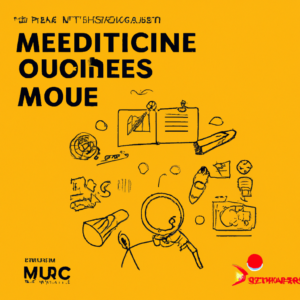The Importance of Physical Exercise for Good Health
Physical exercise plays a crucial role in maintaining good health. It not only helps in keeping the body fit and active but also has numerous benefits for mental well-being. However, if you are unable to engage in physical exercises due to certain limitations or preferences, there are still several ways to maintain good health. While these alternatives may not provide the same level of benefits as regular exercise, they can contribute to overall well-being.
1. Focus on Nutrition
One of the key aspects of maintaining good health without physical exercise is to focus on nutrition. A balanced and nutritious diet can provide the body with essential nutrients, vitamins, and minerals required for optimal functioning. Include a variety of fruits, vegetables, whole grains, lean proteins, and healthy fats in your diet. Avoid processed foods, sugary beverages, and excessive salt intake. Consult a nutritionist or dietitian to create a personalized meal plan tailored to your specific needs.
2. Prioritize Sleep
Sleep is often overlooked but is essential for good health. It is during sleep that the body repairs and rejuvenates itself. Aim for 7-9 hours of quality sleep each night. Establish a regular sleep schedule, create a comfortable sleep environment, and practice relaxation techniques before bed to improve sleep quality. Prioritizing sleep can have a positive impact on your overall health and well-being.
3. Manage Stress
Stress can have a detrimental effect on both physical and mental health. Finding effective ways to manage stress is crucial for maintaining good health. Engage in activities that help you relax and unwind, such as meditation, deep breathing exercises, yoga, or engaging hobbies. Prioritize self-care and make time for activities that bring you joy and peace. Additionally, consider seeking professional help, such as therapy or counseling, if stress becomes overwhelming.
4. Stay Hydrated
Drinking an adequate amount of water is essential for maintaining good health. Water helps in digestion, circulation, and the overall functioning of the body. Aim to drink at least 8 glasses of water per day, or more if you live in a hot climate or engage in physically demanding activities. Avoid excessive consumption of sugary drinks and alcohol, as they can have negative effects on your health.
5. Maintain a Healthy Weight
Even without physical exercise, it is important to maintain a healthy weight. Excess weight can increase the risk of various health conditions such as heart disease, diabetes, and joint problems. Focus on portion control and choose nutrient-dense foods to maintain a healthy weight. Consult with a healthcare professional or registered dietitian for personalized guidance on managing your weight.
6. Engage in Low-Impact Activities
While physical exercise may not be possible, engaging in low-impact activities can still provide some health benefits. Consider activities such as swimming, tai chi, or gentle yoga, which are easier on the joints and muscles. These activities can help improve flexibility, balance, and overall well-being without putting excessive strain on the body.
7. Regular Health Check-ups
Regular health check-ups are important for monitoring your overall health and detecting any potential issues. Schedule regular appointments with your healthcare provider for routine check-ups, screenings, and vaccinations. This can help identify any underlying health conditions and ensure timely intervention.
Conclusion
While physical exercise is highly beneficial for good health, it is possible to maintain a healthy lifestyle without engaging in intense physical activities. By focusing on nutrition, sleep, stress management, hydration, weight management, low-impact activities, and regular health check-ups, you can still take proactive steps towards maintaining good health. Remember to consult with healthcare professionals for personalized advice and guidance based on your specific needs and limitations.




